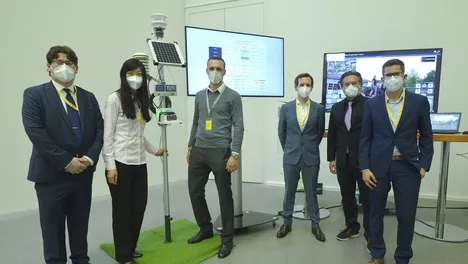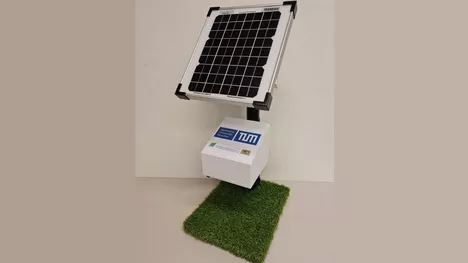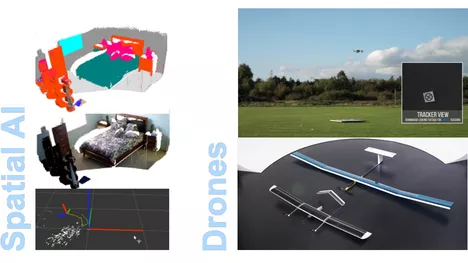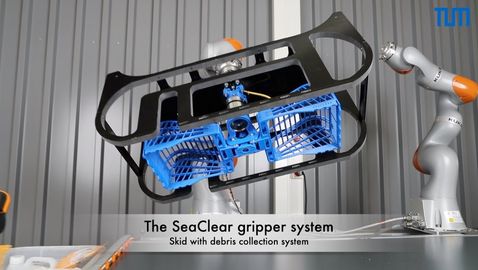In addition to the future of work, health, and mobility, Principal Investigators are researching future-oriented technologies and their applications for our environment. The joint initiative of researchers from various disciplines creates new possibilities to monitor terrestrial and aquatic environments, teleoperate robotics systems, and in the future, enable home-office for farmers.

Photo: Robert Haas.
Autonomous navigation of tractors and intelligent sensor systems
AI and intelligent robots could be used for sustainable agriculture and environmental monitoring. Robotized agricultural machines can save diesel fuel and thus reduce CO2 and NOx emissions. The autonomous navigation of the agricultural robot, e.g., a tractor, on the ground can be optimized from the air using remote-controlled drones.
In other applications, drones equipped with intelligent sensor systems are used to generate real-time air quality maps that measure nitrogen oxides, fine dust, temperature, and humidity every second, and transmit values in real-time.
Autonomous drones with AI and cameras
A drone’s capacity to fly autonomously depends on its ability to accurately identify its localization in the environment. For this purpose, the drone is equipped with cameras and AI to build up a map of the environment in which it can also locate itself in real-time.
Furthermore, If drones are equipped with a dual-arm, they can grasp items from the environment and be used for collecting fruits.
SeaClear and SVAN: Two practical approaches for environmental protection
Underwater robots for environmental monitoring and protection are also part of the research agenda of MIRMI - formerly MSRM - Principal investigators. For instance, the SeaClear project will build a mixed team of unmanned underwater, surface, and aerial vehicles to find and collect litter from the seabed. Or the SVan project aims to combine telepresence, shared autonomy, and human-robot interaction into a single intelligent system to make it easier for experts to extract information and assess new developments with robots.

Picture: F. Dietrich / Professorship of Environmental Sensing and Modeling / TUM
Monitoring air pollutants with real-time sensors
With the help of 50 self-developed sensor systems, the spatial distribution of air pollutants such as NOx and particulate matter will be monitored in the inner city of Munich. This will help us to understand the metabolism of urban air pollutants. Funded by the Bavarian State Ministry of the Environment and Consumer Protection, the Chair of Environmental Sensing and Modeling is currently setting up a densely populated sensor network to monitor air pollutants in Munich (Project TLK 01U-75487: Engmaschiges NO2-Sensornetzwerk in München).

Prof. Dr.-Ing. Jia Chen
Associate Professorship of Environmental Sensing and Modeling
Environment@MIRMI Sector Leader

Prof. Dr.-Ing. Timo Oksanen
Chair of Agrimechatronics
Environment@MIRMI Sector Leader
Learn more about the future of the environment
- The Future of Environment - Reducing Environmental Pollution with Intelligent Robot Networks - MSRM (tum.de)
- Prof. Jia Chen – Associate Professorship of Environmental Sensing and Modeling
- Prof. Sami Haddadin – Chair of Robotics and Systems Intelligence
- Prof. Stefan Leutenegger – Professorship Machine Learning for Robotics
- Prof. Timo Oksanen – Chair of Agrimechatronics
- Prof. Markus Ryll – Professorship for Autonomous Aerial Systems


